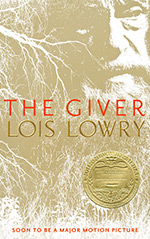
![]() Thomcat
Thomcat
2/11/2014
![]()
This book was published after I graduated from school, so I missed out on the assigned reading. Back in my day, we read 1984, Brave New World and Fahrenheit 451. This dystopia shares elements of each, but doesn't quite measure up.
The best comparison for this novel might be Jeanne DuPrau's City of Ember, which was written for and about young adults. In each, the main characters are coming of age and have been assigned jobs, opening their eyes to the larger world of their community. Also in each, the communities are balanced and ideal. In City of Ember, that balance is tipping and some change must take place; in The Giver, change happens at the whim of the 12 year old main character. It is implausible that nobody in that world has dealt with a similar situation previously.
Speaking of implausible, the whole "transfer of memories" just doesn't fit. How does it happen? Why are memories "gone" after transfer, and how could proximity or death release them to the community? While I like the premise and feel of this colorless world, a technological Widget would have made more sense than some mysterious power of transference.
The last complaint I will make is that everything seems rushed. We gloss over months of training, and while describing each memory wouldn't be required, the relationships of the main character should be. He grows away from his friends (one scene only) and grows towards his mentor. Even the decision to stop taking his pills doesn't seem to have any direct consequences.
Those complaints aside, The Giver shows a lot about Jonas' world in a short time, and doesn't stray from the first person perspective. The ending works perfectly for this. It works well as a young-adult coming-of-age story, and demonstrates first-hand a very severe censorship. As a talking point, this story is great. As a novel for adults... it leaves me colorless. I am interested to see how this will transfer to the medium of film.